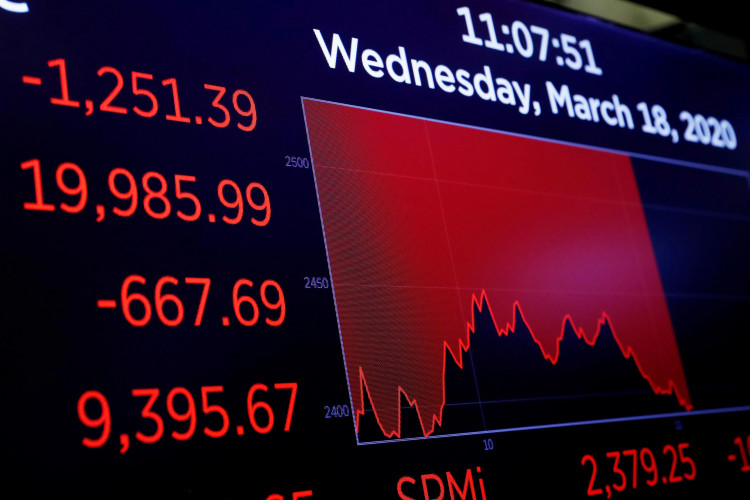On Sunday night stock futures dropped as investors assessed the reopening of the economy along with rising tensions between China and the U.S.
The Dow Jones Industrial Average futures plummeted by 351 points, or 1.5 percent. The futures of S&P 500 and Nasdaq 100 also traded more than 1 percent lower.
Around 24 U.S. states have started to let some businesses to reopen or announce attempts to do so this month, but state and federal authorities still face increasing cases of novel coronavirus outbreaks, albeit at a slower rate.
According to data collected by Johns Hopkins University, the COVID-19 pandemic has claimed the lives of almost 250,000 people worldwide and infected 3.5 million, with 1.154 million in the US alone.
Shares in Hong Kong have seen the majority of losses, with stocks falling in Sydney and Seoul as well. China's yuan continued Friday's slump, along with the pound and the euro, while the Australian dollar slipped, but bonds nudged higher.
Because of holidays in China and Japan, trading volumes may be light and Treasuries do not trade until the London open. Treasury futures rose, and oil ushered in the week on the backfoot.
United States President Donald Trump's threat of reigniting a China trade war in the midst of a global recession and pandemic on Friday sent the major indexes down sharply, wiping out once-solid weekly gains.
Faced with unprecedented economic shutdowns the coronavirus stock market rally was surprisingly solid. Unless Trump's tariff talk persists, it would be a difficult time for the market rally to hold on.
States across the U.S. are encouraging non-essential companies to reopen and are relaxing home-stay restrictions in an attempt to revive the economy after the coronavirus caused a near-global economic halt.
Nevertheless, this easing comes as World Health Organization statistics revealed that between Thursday and Friday the U.S. experienced its deadliest 24-hour cycle.
As investors evaluate efforts from countries beginning to ease lockdown restrictions against fears of a second wave of infections and a steady stream of bad economic results, the more than 10 percent rally in world shares in April is being checked.
Westpac Banking Corp. said income tumbled Monday in Australia and became the latest bank to postpone payment of a dividend. This week's earnings roll will be announced by firms including Disney, BMW, and Air France-KLM.
Meanwhile, the stock market at large did not respond much to the much-hyped Gilead Sciences' news on Friday afternoon. Previous reports on Gilead's remdesivir had caused rally gains or losses on the stock market, so the FDA emergency approval was no surprise.





